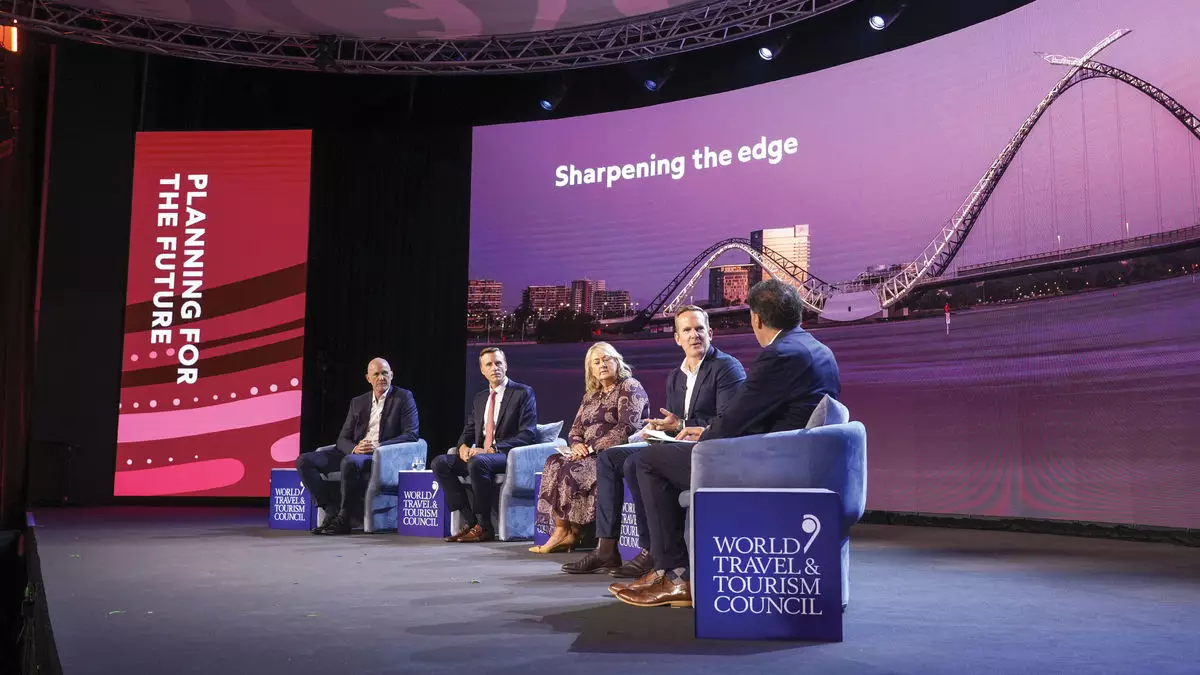As the world has cautiously emerged from the shadows of the COVID-19 pandemic, the travel industry has seen significant shifts that require careful consideration and adaptation. The term “normalization” encapsulates the phenomenon of a gradual decline in travel growth rates, which had initially surged as restrictions loosened. Notably, industry leaders gathered at the World Travel & Tourism Council’s (WTTC) Global Summit in Perth, Australia, provided insights into the current landscape of travel—a landscape that is both evolving and thriving despite the slowing growth rates.
Greg O’Hara, a prominent figure in the industry and chair of the WTTC, articulated a key point during the summit: the concept of growth must be reframed. He noted that the unprecedented growth rates seen during the initial post-pandemic phase are simply unsustainable. O’Hara underscored that the travel industry has settled into a steady growth pattern—one that still represents a remarkable achievement when juxtaposed against historical trends. Specifically, he stated that the travel sector is anticipated to account for 10% of the global economy by 2024, reflecting an abundance of opportunities, albeit within a newly defined scope.
The dynamics of the travel market are shifting, with different segments emerging as key drivers. The pandemic has reshaped consumer behavior, leading to the rise of new demographics for travel services. For instance, Audrey Hendley, president of American Express Travel, highlighted that her organization had to respond rapidly to changing consumer demands, expanding their portfolio significantly to meet the surge in interest. This indication of growth challenges the narrative of a uniform slowdown across the industry, suggesting that redefined consumer behaviors are spurring continuous demand.
In the same discussion, James Thornton, CEO of Intrepid Travel, emphasized the growing importance of sustainability in shaping consumer preferences. Travelers today are increasingly conscientious about their choices, gravitating toward organizations that prioritize minimal environmental impacts and respect for local communities. Thornton’s remarks suggest that integrating sustainability into travel offerings not only attracts environmentally aware consumers but is also a recipe for future growth. By focusing on responsible tourism, companies are well-positioned to capitalize on a fundamental shift in traveler attitudes and preferences.
This makes it evident that merely accommodating increased customer volume is not enough; the industry must innovate and adapt its practices to resonate with contemporary values. Companies committed to sustainable practices are not just responding to a trend; they are paving the way for enduring loyalty and patronage in an evolving marketplace.
Olivier Ponti of ForwardKeys further contextualized these conversations by highlighting the complexity of global travel demand. While certain markets, particularly the United States, are experiencing tempered growth, their sheer size continues to fuel travel activity worldwide. This means that, although local conditions may be experiencing a slowdown, the broader narrative of recovery and growth is still compelling.
Ponti’s analysis revealed that while some hesitance might arise from factors like upcoming elections, the overall trajectory remains promising. This underscores that travel is not a uniform experience globally; various factors—economic, political, and social—play intricate roles in influencing travel patterns.
The conversations at the WTTC summit illustrate a critical juncture in the travel industry’s trajectory. It’s clear that while growth has normalized, there are abundant opportunities for enterprises to thrive by aligning their offerings with the specific desires of today’s travelers. As the industry embraces customization and sustainability, it signals a promising period of resurgence.
The evolution of the travel landscape post-pandemic is multifaceted, characterized by adaptability and new consumer expectations. Business leaders must continue to meet these challenges head-on, recognizing that the future of travel is not merely about numbers but about crafting meaningful experiences that resonate on multiple levels. With sustainability at the forefront and a renewed focus on consumer behavior, the path forward, though different, holds significant potential.

